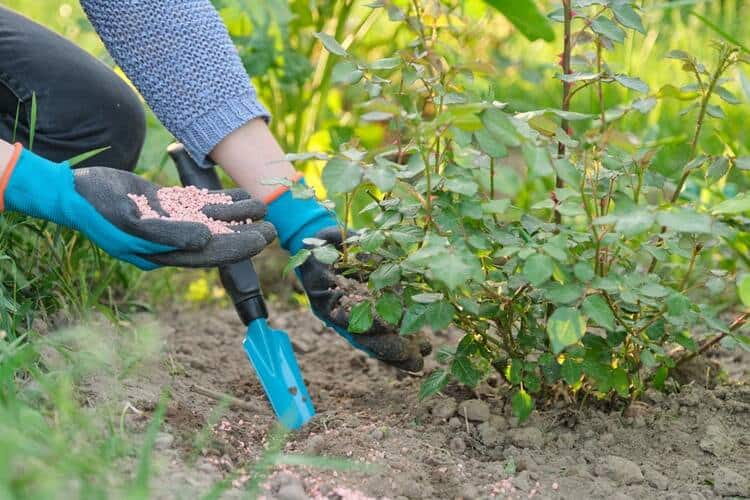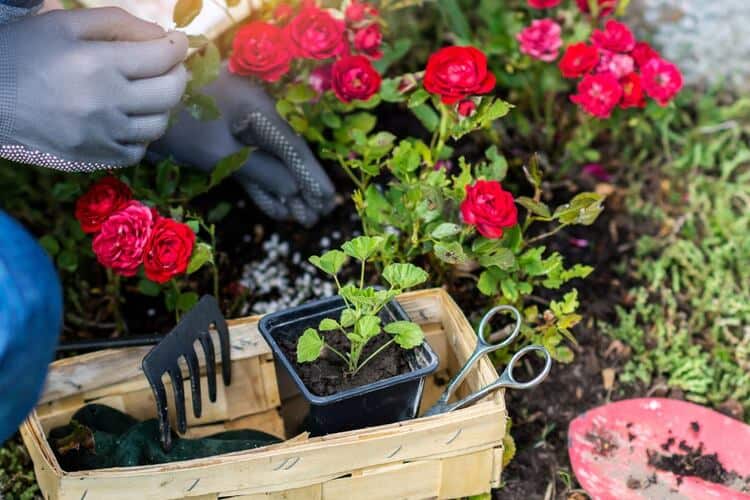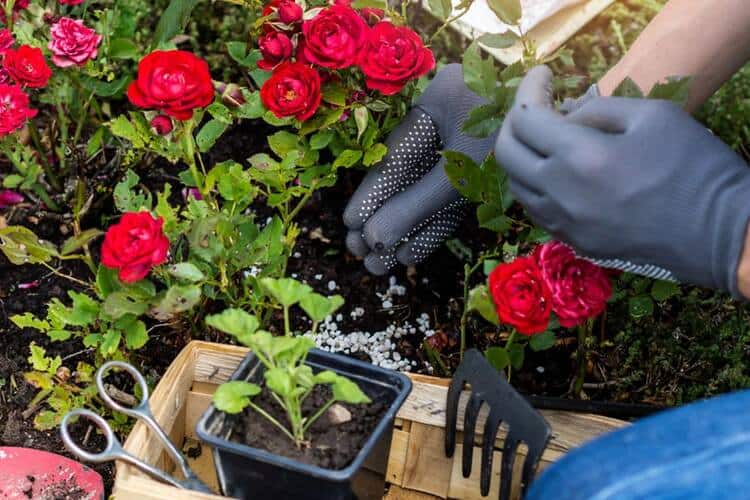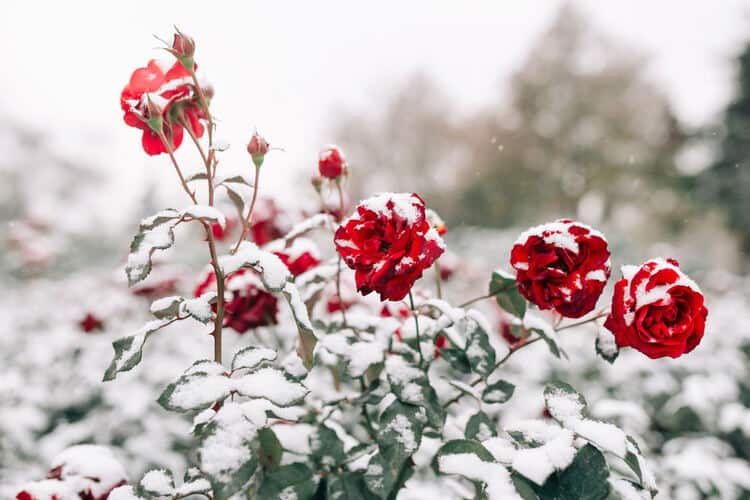Can You Over Fertilize Roses? Risk To Burn Your Roses

Fertilizers can help boost the rose’s development. The question is how much fertilizer your plant needs. Can you overfertilize roses? The short answer is no. Over-fertilizing can lead to fertilizer burn and may cause many problems for your plants, such as fewer blooms, diseases, mineral toxicity, leaf drop, and burning leaves.
In this article, Swipe Garden will share some fertilizing tips to help your plant thrive. Let’s read on to discover!
How Much Fertilizer Do You Put On Roses?
Too much synthetic fertilizer can kill your roses by destroying beneficial soil microbes and causing a salt burn. Proper fertilization is crucial for rose plants and can impact root growth. The exact amount depends on the type of fertilizer you use. There are two main types of nutrients: organic fertilizers and inorganic ones.
Organic fertilizers
Each rose needs about one tablespoon of organic fertilizer. All three primary macronutrients, N, P, and K, are abundant in old or composted manure. Always use aged manure. If not, its high nitrogen level will produce chemical burns in your plants. Phosphorus is also a necessary compound for the soil. You can find it in a bone meal. You can also apply fish emulsion or liquid fish nutrients to your plant by mixing them with water.
Other organic options for feeding roses include:
- Micronutrients and potassium in the green sand.
- Calcium, phosphorus, and micronutrients in rock phosphate.
- Phosphate and nitrogen in seaweed.
- Nitrogen and trace minerals in Alfalfa meal
Inorganic fertilizers
Refer to the instructions on the fertilizer label to determine the appropriate amount for your rose. In general, the ideal amount may vary depending on the specific fertilizer and plant size.
There are feeds with an N-P-K ratio (often 18–24–16) adapted to the greater phosphorus demands of your flowers. However, you don’t necessarily need to purchase a specialized fertilizer for your flowers. A basic balanced fertilizer with a higher phosphorus concentration can also work, such as 4-12-4 or 4-8-4.
If you opt for inorganic fertilizers, make sure the soil is moist before applying. Otherwise, it may cause burns.
When Should I Stop Fertilizing My Roses?
You should stop feeding your rose about eight weeks before the first freeze. During this time, your plant doesn’t need fertilizer. The best time for fertilizing is during the plant’s growing period. You can add compost to the hole when planting young roses. Then, apply liquid fertilizer one month later, once they’ve rooted themselves.
Once new shoots reach approximately 6 inches in length, begin fertilizing older plants in the spring. After the first blooming, most roses may benefit from the second feeding of nutrient solutions.
How Often Should You Fertilize Your Rose Bushes?
The frequency may vary depending on the type of fertilizer used. In general, gardeners fertilize roses every four to six weeks. This time frame enables the plants to absorb the nutrients and keep growing. It also avoids over-fertilizing, which may ruin your crop.
How Do I Get My Roses To Bloom More?
Fertilization is not the sole method for promoting rose growth. You can try some other methods to encourage your plant to flourish.
Water
Water is essential for the growth of all plants. Begin by checking the soil for moisture and evaluating the current weather conditions. If the soil appears excessively dry, use drip irrigation or a soaker hose to apply water straight to the soil. Make sure to water roses after feeding your plants to get a better result.
Pruning
You may trim your plant in the early spring to encourage it to bloom throughout the season.
Soil
It would be best to plant roses on soil that drains well. Poor drainage may smother your plants and leave them with little to no room to breathe. To improve soil quality, consider backfilling the planting site with organic matter like compost and excavated soil.
Sunlight
Planting the plants in the right spot is just as essential as caring for them later. Ensure that your plants receive approximately six hours of direct sunlight daily. If you keep them in the shade, they may be more susceptible to infections and other damaging circumstances.
Conclusion
Roses are among the most popular flowers because of their elegance, scent, and abundance. Yet, if you take care of them incorrectly, you may ruin their beauty. Over-fertilizing is a common mistake for beginners. To avoid this, you need to determine the exact amount of rose fertilizer for plants. Also, consider carefully where and how to feed them.
Hopefully, you will find this article helpful for your beautiful roses. If you need any further information, please feel free to ask. Thank you for following this post!
FAQs
Related posts:




